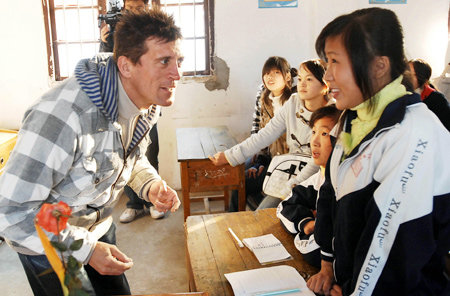I get rather a lot of questions from readers interested in working in Japan as a teacher, and I do my best to guide them to useful information, although I haven’t been working in the field myself for more than a decade. Teaching ESL is a potentially fun option for people wanting to work for a few years in Japan, as long as you have realistic goals and know what you’re getting into. Teaching English in Japan might not be the best long-term career choice, due to ongoing problems with the industry in general, which took a big hit when the large eikaiwa chain Nova imploded last year. One of the most popular choices for teaching in Japan is the Japan English Teacher (JET) program, operated by the government to get native English speakers into the country to teach and also facilitate “grass roots Internationalization” of Japan, and judging from the capacity crowd at the JET panel at Anime Expo, there is a lot of interest among anime fans. Unfortunately, getting accepted into the JET system can be a challenge since there are so many applicants each year, but I’ll be happy to give the very few points of advice I can offer. First, there are two types of JET jobs, Assistant Language Teachers (ALTs) who do the actual teaching, and Coordinators for International Relations (CIRs), who help guide the program and who need a minimum amount of Japanese. As a rule, I generally recommend people with a deeper interest in Japan to consider trying for the latter job, which will probably contribute more to your understanding of Japan overall, and could help you build kone (KOH-neh, or connections) for the future. There are plenty of alternatives to JET, too: for example, most cities have “sister cities” in Japan, for example our city of Isesaki is has a relationship with Springfield, Missouri, and often there are ALT jobs or exchange study opportunities open through these connections. Increasingly, Japanese school districts will rely on outside companies that take the teacher hiring responsibilities out of the hands of the city, so finding these companies is a good idea to consider for anyone seeking these jobs. Note that there are alternatives to full-fledged teaching in Japan — for example, the Lion’s Club has an International Camp and Youth Exchange Program, which (I hear) often don’t have enough applicants. Bottom line, if you want to come to Japan, there is probably a way!
Enjoying Anime Expo, Are You Here?
We're having a blast at Anime Expo 2018 in booth 1515/1611, selling tons of fun products and hanging out with cool people...
















